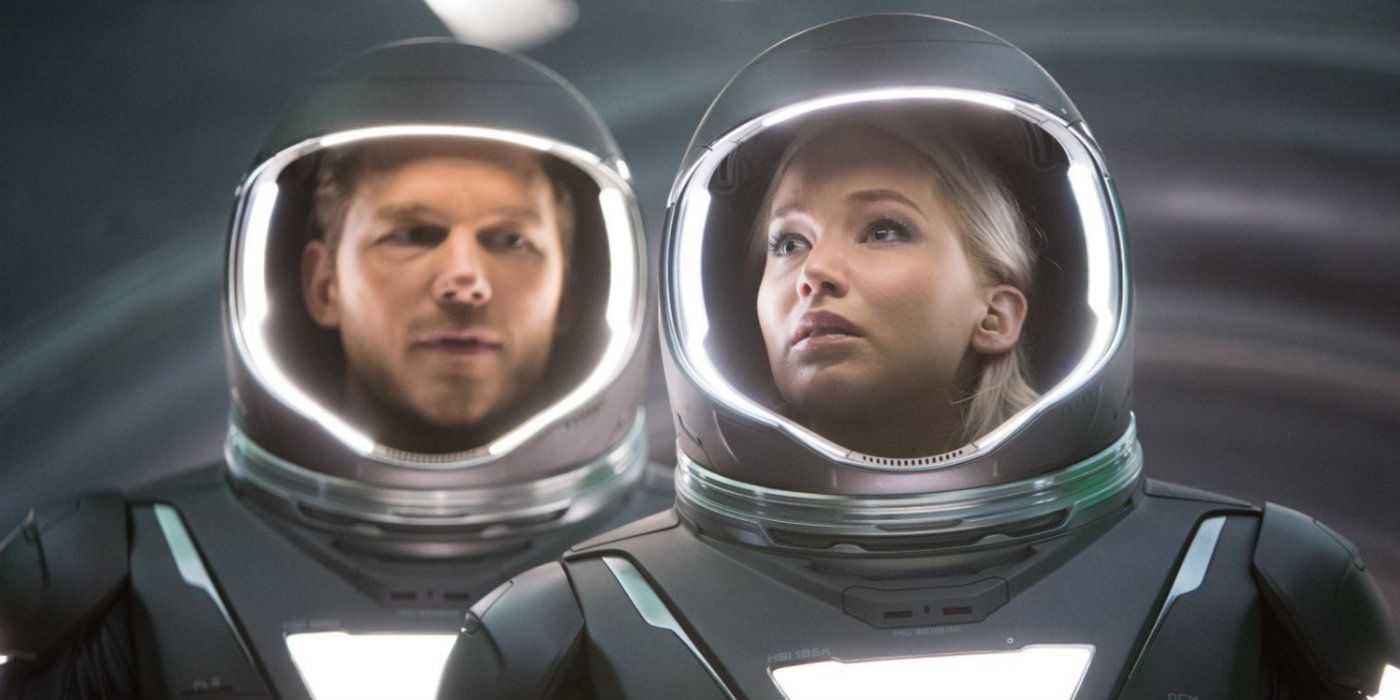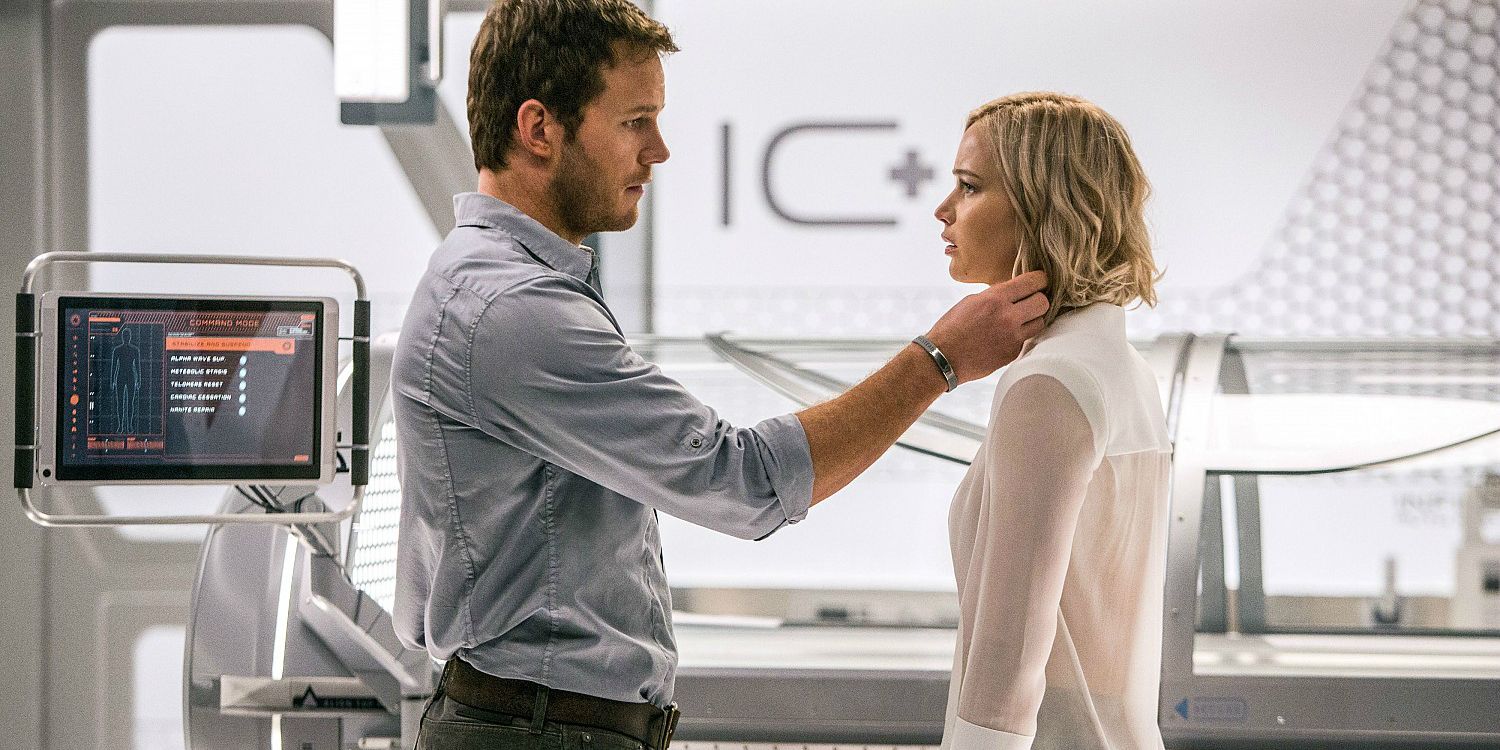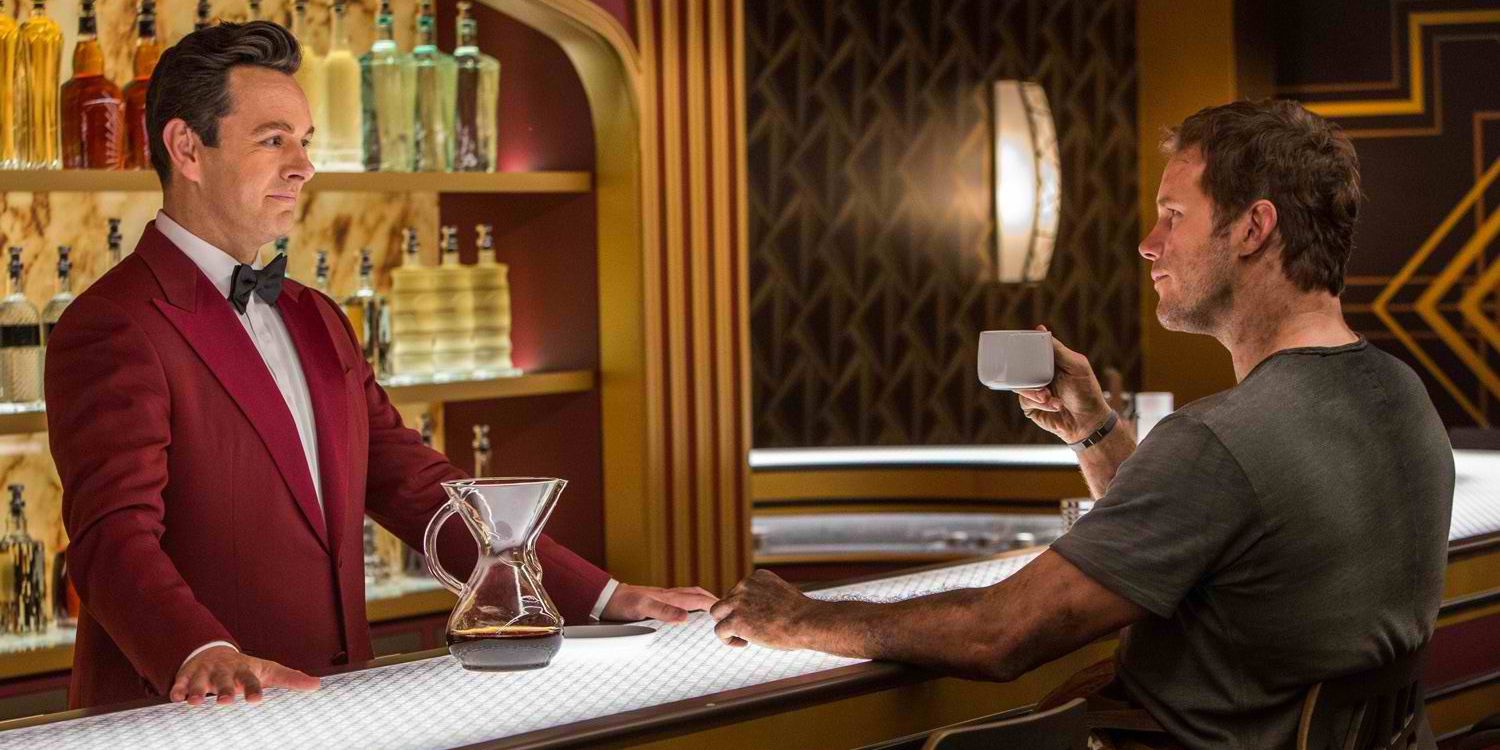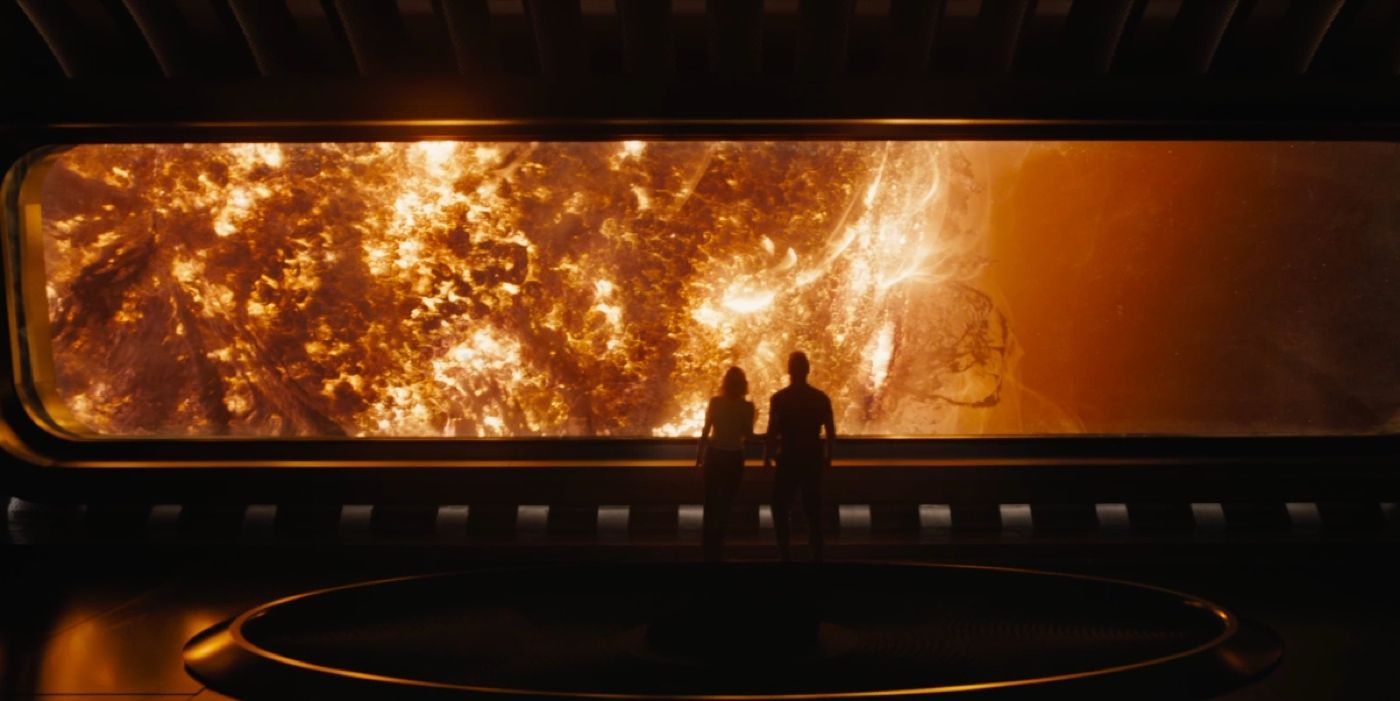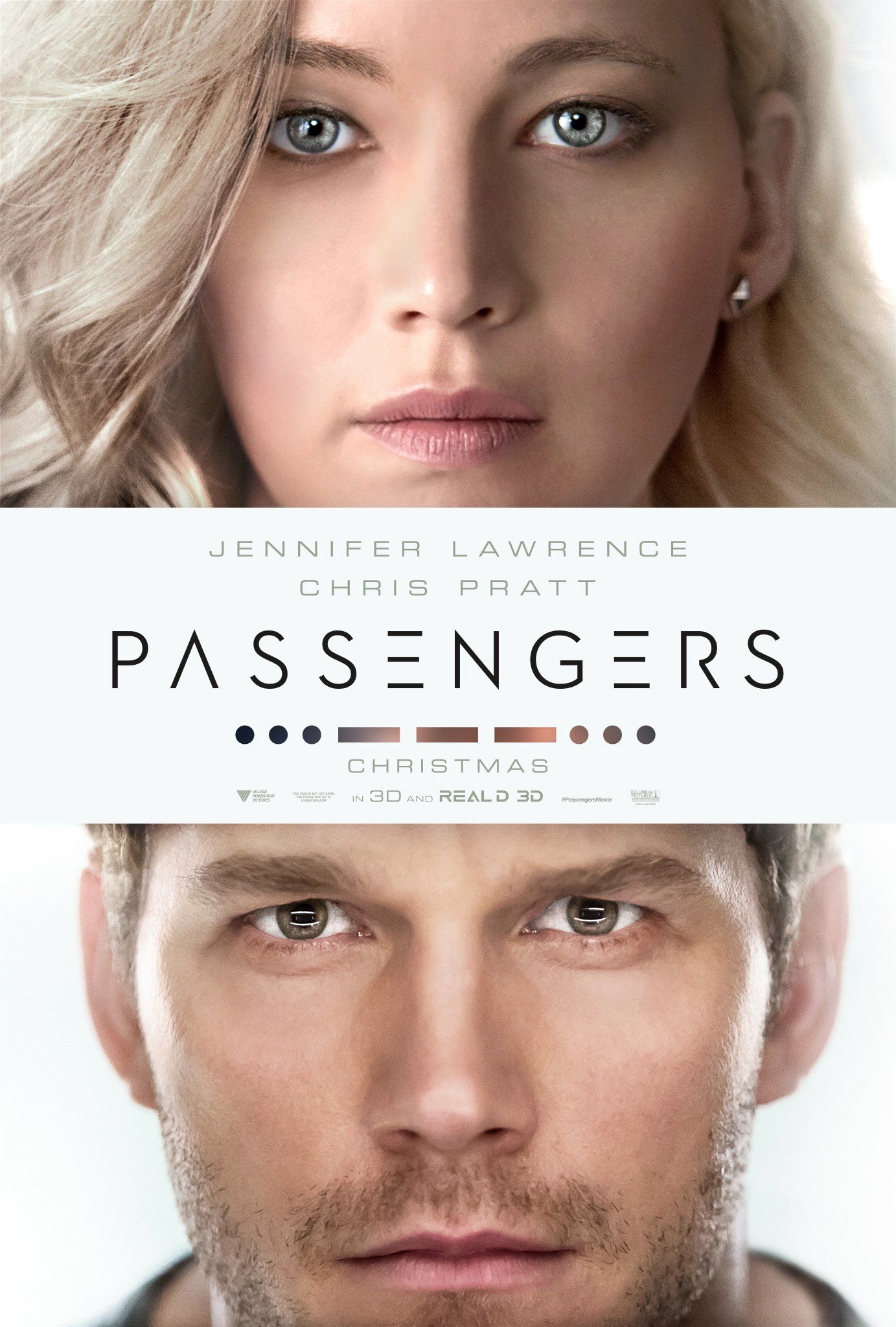[SPOILERS for Passengers ahead.]
-
The best word to describe Passengers would be “frustrating”. The new sci-fi film stars Chris Pratt and Jennifer Lawrence as two characters who wake up 90 years too early from cryosleep on a spaceship making its way to a new world - and has one of the purest hooks you could want. It's a story full of twists and turns, with two of the only few actors who can successfully open a modern movie (a club whose members you can pretty much count on one hand).
Sadly, it’s also a massive waste of potential. Passengers isn't a worthy addition to the sci-fi genre’s cerebral wave that we’ve seen over the past few years - failing to hold a candle next to Gravity, Interstellar, The Martian and Arrival - and at points feels like a derivative version of other recent sci-fi offerings. Pratt's performance is up to scratch, but Lawrence's turn is lacking - and director Morten Tyldum never quite gets into the mental impact of Jim (Pratt) being alone for a year on a spaceship, nor the true moral complexities of his decision to wake up fellow passenger Aurora (Lawrence). In fact, the whole movie feels like a better idea sterilized to better tap into its leads' respective fanbases.
The worst part, however, is Passengers' third act. During that portion of the film, Laurence Fishburne gets a rushed cameo as a newly-awoken crew member who swiftly finds he has two hours to live, while the psychological drama of the movie's first half gives rise to an action movie full of disconnected set pieces, contrived plot turns and half-baked fictional science. Jim then sacrifices himself to vent a build-up of reactor energy in the spaceship, caused by the meteorite that caused him to wake up in the first place - only to be saved and resurrected by Aurora, which he repays by offering her the chance to go back to sleep, before she instead opts to stay with him. The movie then ends by revealing that the pair lived a happy life thereafter. On the whole, it's an ending best summed up as scattershot, poorly-edited and very morally dubious.
The Black List Script
What really makes Passengers a disappointment is that it has been hyped for so long. It placed third on the Black List in 2007, the always lauded list of the best unproduced scripts in Hollywood (it’s previously featured Argo, Chronicle, The Prestige, (500) Days of Summer and Spotlight), was originally set to star Keanu Reeves and Emily Blunt, and since then has been one of the most heavily praised films stuck in development hell. For it to be made at all, let alone with a massive budget (it reportedly cost $120 million), should be cause for celebration, but it almost wasn't worth the effort. Screenwriter Jon Spaihts (who used the hype for the script as collateral to move onto big projects such as Prometheus, Doctor Strange and Pacific Rim: Uprising) was involved in all script updates, but his original vision would up being changed as the Passengers screenplay went though various stars and studio backers.
The 2007 version of the Passengers script is, in general, a stronger piece of work, with a more unique sci-fi vision than the derivative construction of the finished film. It better develops its characters and their place in the world, and while some of the dialogue is a bit more hokey, there’s a more distinct tone to offset that; it’s more comedic than you’d expect. Most importantly, it handles the incredibly tricky subject of Jim waking up Aurora with more deftness, delving deeper into the morality of it all (although to the film's credit, it does make the pure emotional impact of her discovery harsher). It’s not perfect and has a light touch to what could be a really meaty concept, but there’s a better attempt at balancing the quandary through the storytelling that would likely have led to less complaints of the "murder by proxy".
The Original Ending
As you might expect, the third act was where things changed the most for Passengers. The general idea is still there - the ship's problems are caused by a stray meteor and things begin to tumble after a third person wakes up - but everything is more coherent in the original screenplay. For starters it’s better set up (the problems with the core computer are more fundamental and seeded throughout), which makes it feel less like a random turn made out of a studio's fear of boredom. Gus (Fishburne) is also a much stronger character; we learn a lot more about his past (he’s been ferrying colonists for over 600 years) and the post-hibernation illness is highly prevalent, making his death a lot more impactful. Crucially, he doesn't have time to address the ship’s problems, putting the onus of fixing it explicitly on Jim and Aurora after his death.
It’s thus the real disaster part that's the most different, with things much more frantic, yet less visually resplendent (the change was likely to give a typically blockbuster finale). There's none of Jim having to hold the reactor vent open with only a door he removed using the heat of a blow torch as a shield before being saved by Aurora in space (a scene overly reminiscent of Gravity). Instead, after Gus’ death the pair find the hole in the ship that almost pulls them out into space, nearly killing Jim (and not the later mission). The anti-grav malfunction on the ship comes as Jim recovers, much later than in the film, forcing the pair into a mad rush to fix the ship. There’s a greater explanation of what’s gone wrong with the mini-sun reactor too, and the main characters replace the computer more simply without real incident. However, the reset makes the ship’s computer think it’s docked and begins venting cryo pods, gradually dumping the 5000 other passengers into space. Jim and Aurora rush to stop it and save the captain, but fail; eventually they really are the only ones left on the ship. Like the film, the script comes to an end at Homestead II, but this time crowds of people come pouring out of the ship - Jim and Aurora’s descendants.
It doesn't need saying that the original Passengers script's ending is much darker than that in the actual film, taking the theme of isolation in space to its absolute extreme, as well as giving a genuine reason for Aurora's ultimate cooling on Jim's morally-reprehensible behavior; it doesn't defend his actions, but she would have died had he not woken her up. There's obviously the same shared ancestry inbreeding problems you get with any Noah’s Ark-esque story (a question left unaddressed in the finished movie), but it gives a fitting-yet-sentimental ending to the romance subplot that ties into the wider future-Earth exploration in the story.
Conclusion
Passengers is a big disappointment and many of its problems lie in the shooting script draft. Neither Pratt, Lawrence nor Tyldum are at their best here, but it's the ultimately-nonsensical story that really hampers the film. Would the original script have led to a better movie? It’s debatable, seeing as the original screenplay has its faire share of issues too, but Spaihts' earlier draft does offer a more focused dissection of its story's core themes and deeper character beats.
What is unquestionably better, however, is the ending in the original Passengers screenplay versus that in the finished film. So often with alternate versions of stories, the allure of what might have been overpowers creative reasoning (see the planned great-grandchildren reveal, which would have been just as troubling as the vague resolution in the actual movie), but in this case it seems clear that, reading the screenplay, the disjointed third act was originally more coherent and fitting of what had come before. Bringing things full-circle, the best word to summarize Passengers is "frustrating".

